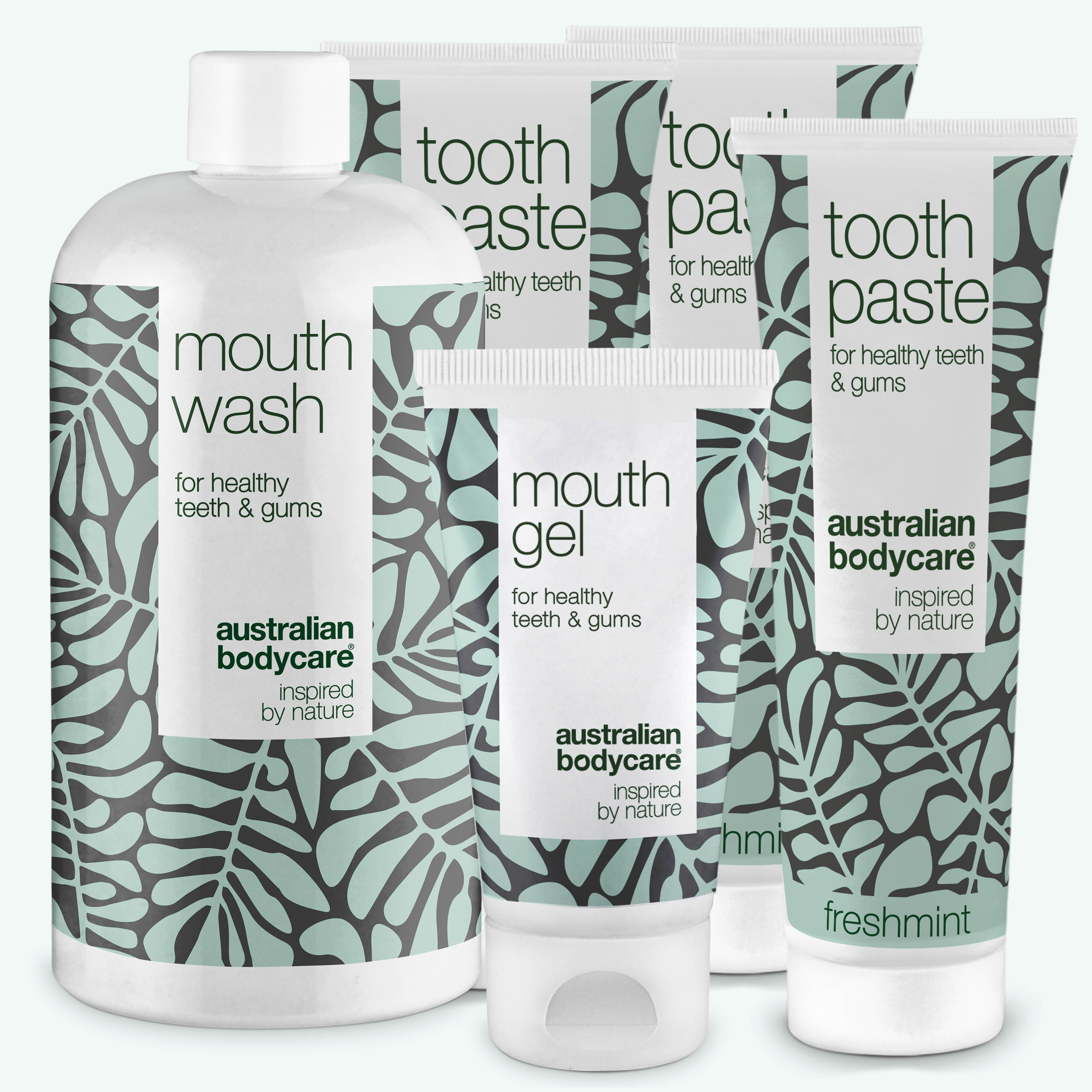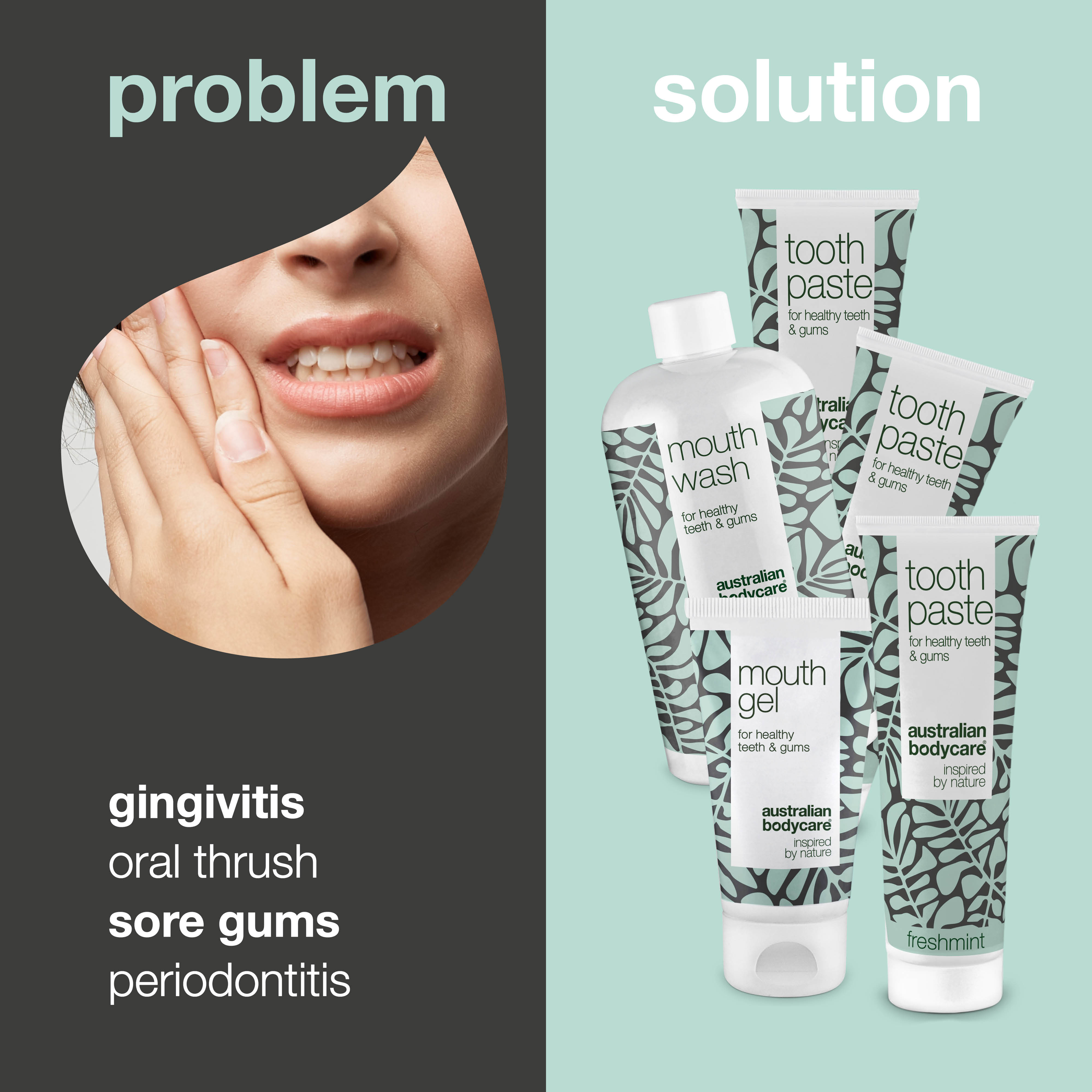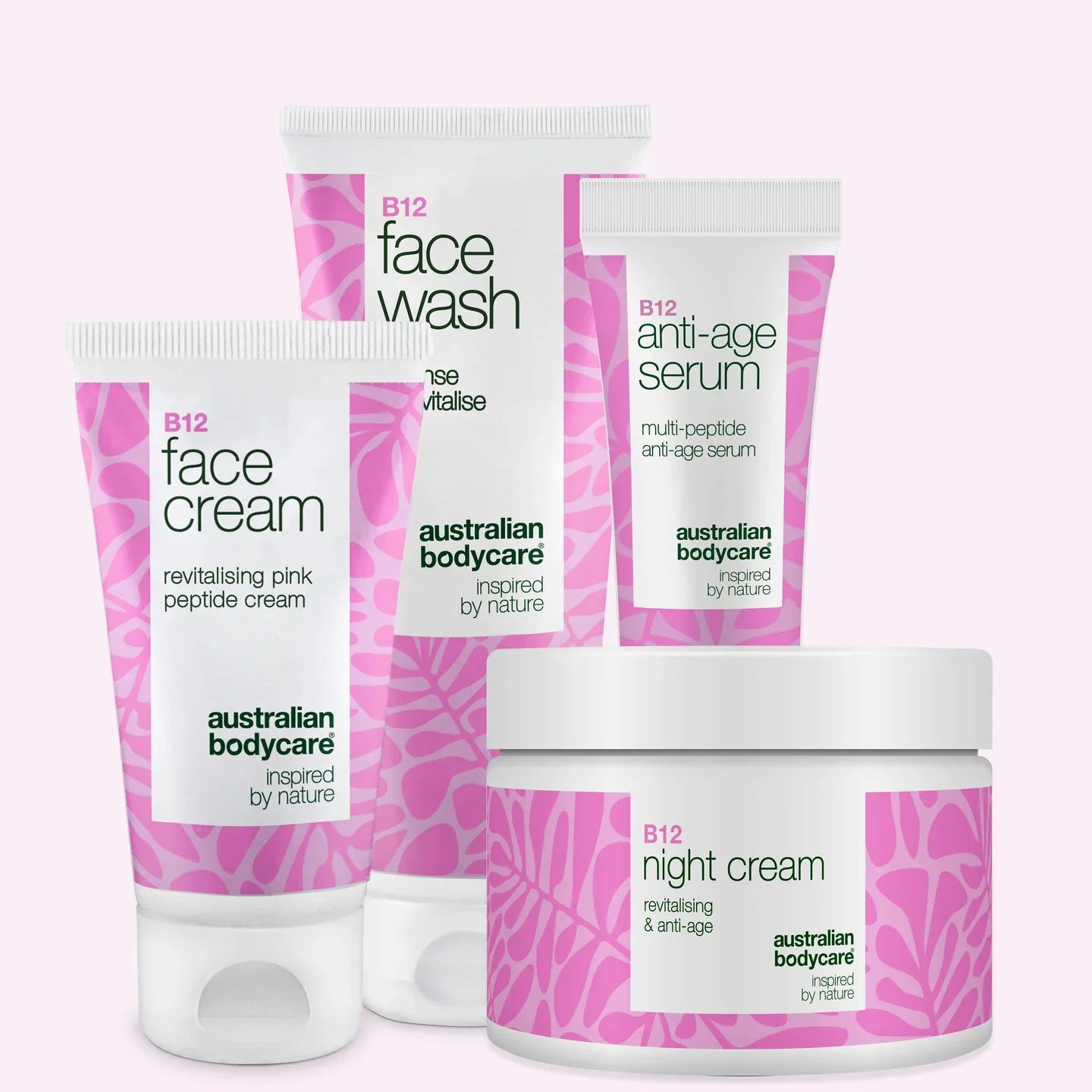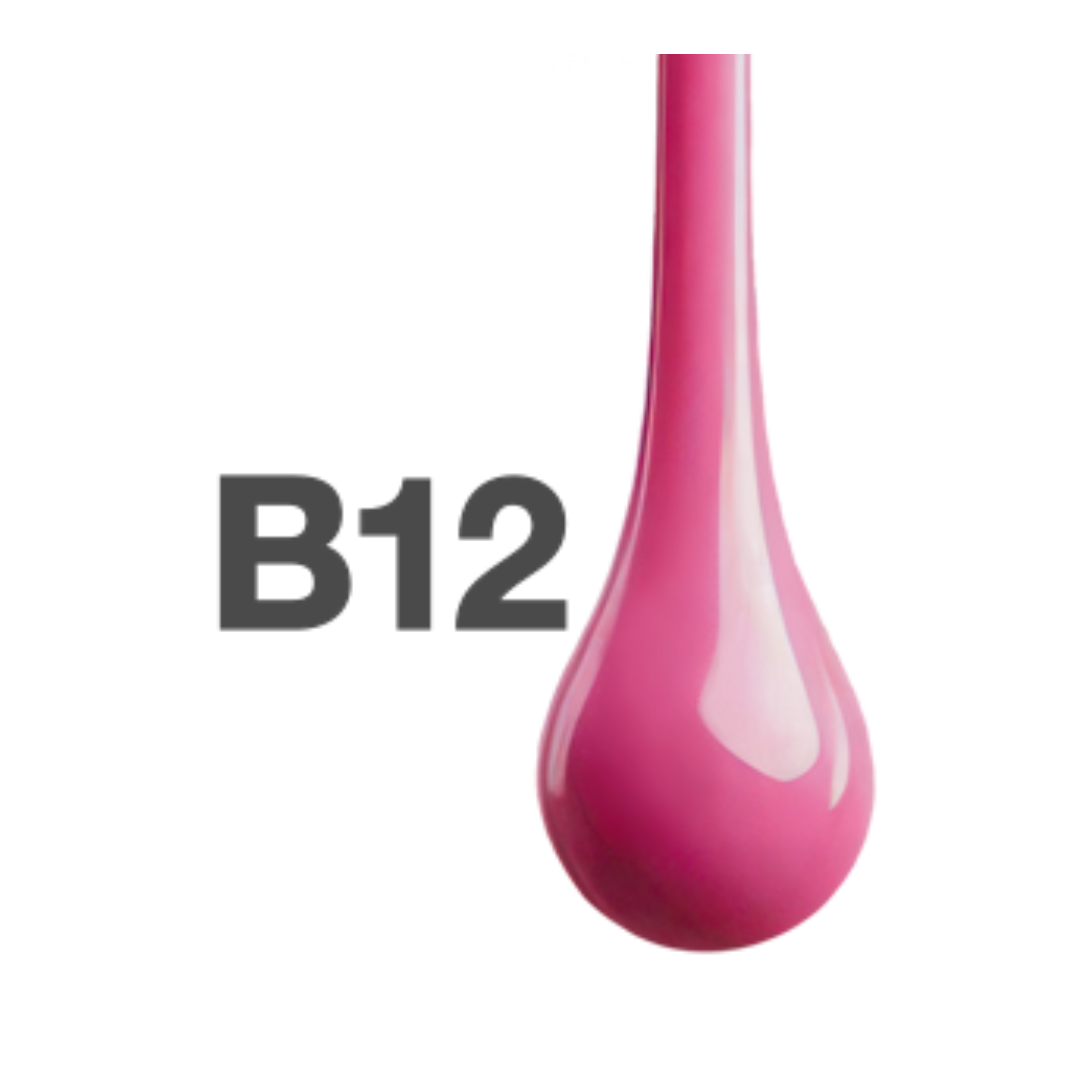Thrush on the tongue – symptoms and treatment of tongue thrush
Thrush on the tongue is an uncomfortable condition, which should always be treated. You can read more here about the typical symptoms, how people get thrush on the tongue, who is most often affected, and how it can be treated.
Table of contents
What are the symptoms thrush on the tongue?
If you have thrush on your tongue, you will probably discover it because you have an uncomfortable metallic taste in your mouth. Your sense of taste may also be reduced.
You will typically see white or yellowish coating on the tongue, and perhaps also on the palate and inside the cheeks if the fungus has spread all round the oral cavity.
The white or yellowish patches may be slightly raised, and if you scrape them away, it will cause small sores that are tender, and bleed easily.
Some people with thrush on the tongue describe a ‘cotton-like’ sensation.
Tongue thrush can also cause a burning and stinging sensation, which is made stronger by food or drinks.
It is not unusual to have a dry mouth and get cracks at the corners of the mouth with thrush on the tongue.
If the fungus spreads to the rest of the oral cavity and the palate, it is referred to as oral thrush. In some cases the fungus can also spread to the gums, and even to the tonsils or throat, where there may be redness or inflammation.
See a doctor if you suspect you have tongue thrush
If you suspect that you have thrush on your tongue, you should go to the doctor, so that you can have it checked.
If you already have a reduced immune response, it is especially important that you see your doctor immediately, so that the doctor can decide whether the symptoms are caused by tongue thrush or something different – and so you can be treated quickly.
Your dentist will also be able to decide whether you have tongue thrush, or whether the symptoms are a sign of something else.
The symptoms of thrush on the tongue can resemble the symptoms of other diseases or conditions, and that is why it is important to be examined.
The examination will normally mean a scrape is taken from the fungus on your tongue, which is then cultured and examined, possibly together with a blood test.
What is thrush on the tongue?
Thrush on the tongue is an infection with the yeast fungus Candida albicans, which is naturally present on the mucous membranes in everybody’s oral cavity.
If there is an excessive growth of fungi, for example due to a weakened or reduced immune reaction because of illness or taking medication, the fungal infection can give rise to symptoms that cause trouble.
Normally the body is able to ensure that growth conditions are not too favourable for bacteria, viruses and fungi, but if the immune response is weakened, the balance can be shifted, and that is when thrush on the tongue can develop.
How is thrush on the tongue treated?
Thrush on the tongue must always be treated immediately, because it very seldom clears up by itself. It is also important to find the underlying cause of the thrush on the tongue, so that the cause can be treated too.
For instance, if the thrush is caused by a piercing in the tongue, it is not sufficient just to treat the thrush. If you cannot tolerate the piercing, the thrush will recur, unless you have the piercing removed.
If you have symptoms that feel like the symptoms of tongue thrush, you should have them examined by your doctor.
This certainly applies if you already have a weakened immune response, perhaps because of illness.
Thrush on the tongue is normally a harmless condition, but it is uncomfortable, and of course, it should be treated. But if you have a reduced immune response, untreated thrush on the tongue can be a more serious condition, because then there is a risk of the fungus spreading to the digestive system and the airway.
Remedies for thrush on the tongue
If you are diagnosed with thrush on the tongue, you will normally be given a prescription for medication to kill the fungus. This is usually a syrup or a gel.
If the infection is severe, treatment with fungicidal tablets may be necessary.
You can try to deal with the problem by rinsing your mouth with a chlorhexidine product.
An old-fashioned home remedy is to rinse your mouth with a highly sparkling mineral water, or dab it on your tongue. This is recommended for babies with thrush on the tongue. Doctors do not always agree, however, about whether this has any effect.
There are no over-the-counter medications for thrush on the tongue, so if you suspect you have it, you should contact your GP.
If you have mild thrush on the tongue, and are otherwise in good health, it is always a good idea to begin with one of the milder treatments for thrush. The stronger remedies for tongue thrush may also have certain side effects.
We recommend using Tea Tree Oil mouth gel to relieve the irritation and itching in the mouth. Natural Tea Tree Oil is known to be effective against bacteria, itching and irritation. We recommend using the mouth gel 1-4 times a day for optimal effects. Tea Tree Oil does not taste very pleasant, but the taste disappears after a short time, and it leaves a healthy, clean feeling in the mouth. It also helps to combat bad breath if you do this three or four times a week.
It is effective in many ways against symptoms in the oral cavity – both to relieve them and to prevent a variety of problems:
- It is effective against irritation in the mouth.
- It keeps the mouth clean.
- It prevents bad breath.
- It keeps the mouth fresh and healthy.
- It combats bacteria in the mouth.
- It combats cracks at the corners of the mouth.
How can you prevent thrush on the tongue?
If you have thrush on your tongue, it is important to have it treated. Apart from that, it is worth considering how you can prevent tongue thrush from flaring up in future.
To prevent thrush on the tongue:
- Always maintain good oral hygiene by supplementing tooth brushing with brushing your tongue and mouth with a soft toothbrush.
- Avoid smoking.
- Avoid – or at least cut down on – sugar, sweet things and carbonated drinks.
- Always make sure you rinse your mouth out with water if you have used a steroid inhaler with cortisone.
How do you get infected with thrush on the tongue?
Fungus can be infectious, but thrush on the tongue is not the most infectious type. It is not generally passed on through ordinary physical contact, or by kissing. However, babies with thrush on their tongues and in their mouths can infect their mothers’ nipples with thrush during breast feeding. A baby can be infected at birth if the mother has fungus in the vagina.
Most people, if they are generally healthy, are not as receptive to fungal infections as those with a reduced immune response, but this is not an infallible rule.
Thus most cases of thrush on the tongue develop because, for one reason or another, there is a change in the chemistry in the mouth, and not through infection. The change provides favourable conditions for the fungus to grow and spread, and then it begins to cause problems.
Why do people get thrush on the tongue?
The reason will always be a change in the chemistry in the oral cavity.
As long as there is a natural balance between useful and harmful bacteria and fungi, there will be no problems. It is not until the balance is shifted that we get symptoms and problems.
Most often, the balance between bacteria shifts in people who already have a weakened immune response, and there may be many possible causes.
Some of the most frequent causes of thrush on the tongue are:
- Antibiotics such as penicillin.
- Steroid inhalers.
- Vitamin deficiency or anaemia.
- Reduced production of saliva.
- Using dentures.
- Metabolic conditions or immunodeficiency.
- A weakened or reduced immune response in cancer patients undergoing chemotherapy or radiation therapy.
- Weakened or reduced immune response in patients with AIDS/HIV.
- Drug abuse.
- Stress or poor diet.
- Piercings in the tongue.
- Poor oral hygiene or poor denture hygiene.
- A large and frequent consumption of sugar, sweet foods and carbonated drinks.
Some of the most frequent causes of tongue thrush are using a steroid inhaler with cortisone, treatment with antibiotics, wearing dentures, and diabetes.
If you are in a risk group for getting thrush on the tongue, it may be worth thinking about how you can minimise the risk yourself and prevent attacks of tongue thrush.
For example, if you use a steroid spray, it is important to rinse your mouth thoroughly afterwards. If antibiotics are prescribed for you, then be aware of the symptoms, so that you can get treatment quickly if needed.
If you have dentures, ask your dentist to show you what you can do yourself to maintain good oral hygiene.
And if you have diabetes, make sure you keep it well controlled, so that there is not too much sugar in your saliva.
For those who are generally in good health, tongue thrush will as a rule be quite harmless. On the other hand, it may be more serious for those who are already vulnerable. For them it is even more important to start treatment quickly, so that the fungus does not spread to the digestive canal or the airway.
Can babies get thrush on the tongue?
It is quite common for babies to get thrush on the tongue or in the mouth. In infants it is sometimes simply called thrush. It appears as white patches on the tongue and possibly also on the gums and inside the cheeks.
Mild cases of thrush may sometimes clear up by themselves, but in more severe cases it can cause discomfort and make eating difficult for the baby. In any case, it is a good idea to treat thrush, so that it does not become worse.
It is often recommended to treat mild cases of thrush with a cotton-wool bud dipped in camomile tea or sparkling mineral water. Opinions differ, however, about the effectiveness. If this does not work, you can get a remedy for fungus from your doctor or the pharmacy.
If you are in doubt about whether the white spots on the tongue are thrush or simply remnants of milk, you can scrape them gently. If you can scrape them away, then they are remnants of milk. If they are attached, then they are thrush.
If the baby has caught thrush, there is a considerable risk that the mother will be infected through breast feeding. For that reason it is also important to have the thrush treated.
The probable reason why babies easily get thrush or fungus on the tongue is because their immune system is not yet fully developed, so they are more receptive to fungal infections.
FAQ about thrush on the tongue
Why do people get thrush on the tongue?
There are many possible reasons for thrush on the tongue. Among other things, it may develop after a course of treatment with antibiotics, or using a steroid inhaler with cortisone, in patients with diabetes, through wearing dentures, in smokers, or if you have a piercing in your tongue. In general thrush on the tongue is more frequent in those who already have a reduced immune response because of medication or illness.
What does thrush on the tongue look like?
The typical symptoms of thrush on the tongue are white or yellowish spots on the tongue, often accompanied by an unpleasant metallic taste in the mouth (and possibly also a ‘cotton-like’ sensation in the mouth). The sense of taste may also be reduced. The patches may be slightly raised, and if you try to scrape them away, it will cause small sores that are tender, and bleed easily. The patches may spread to the palate and inner side of the cheeks.
Is thrush on the tongue dangerous?
For those who are otherwise in good health, thrush on the tongue is normally a harmless condition. However, thrush on the tongue should be treated, as it rarely clears up of its own accord. On the other hand, for those who have a reduced immune response, for example because of illness or treatment with medication, thrush on the tongue may be quite serious if it is not treated immediately. There is a risk that it can spread to other parts of the body, for instance the digestive system or airway.
How fast does thrush on the tongue disappear?
It varies considerably how quickly you can get rid of thrush on the tongue. It depends very much on how long you have had tongue thrush, and how widespread it is. Normally, you will see an improvement after a few days’ treatment with a fungicide, but it may take longer. Very often, you will have to continue the treatment for several weeks.





